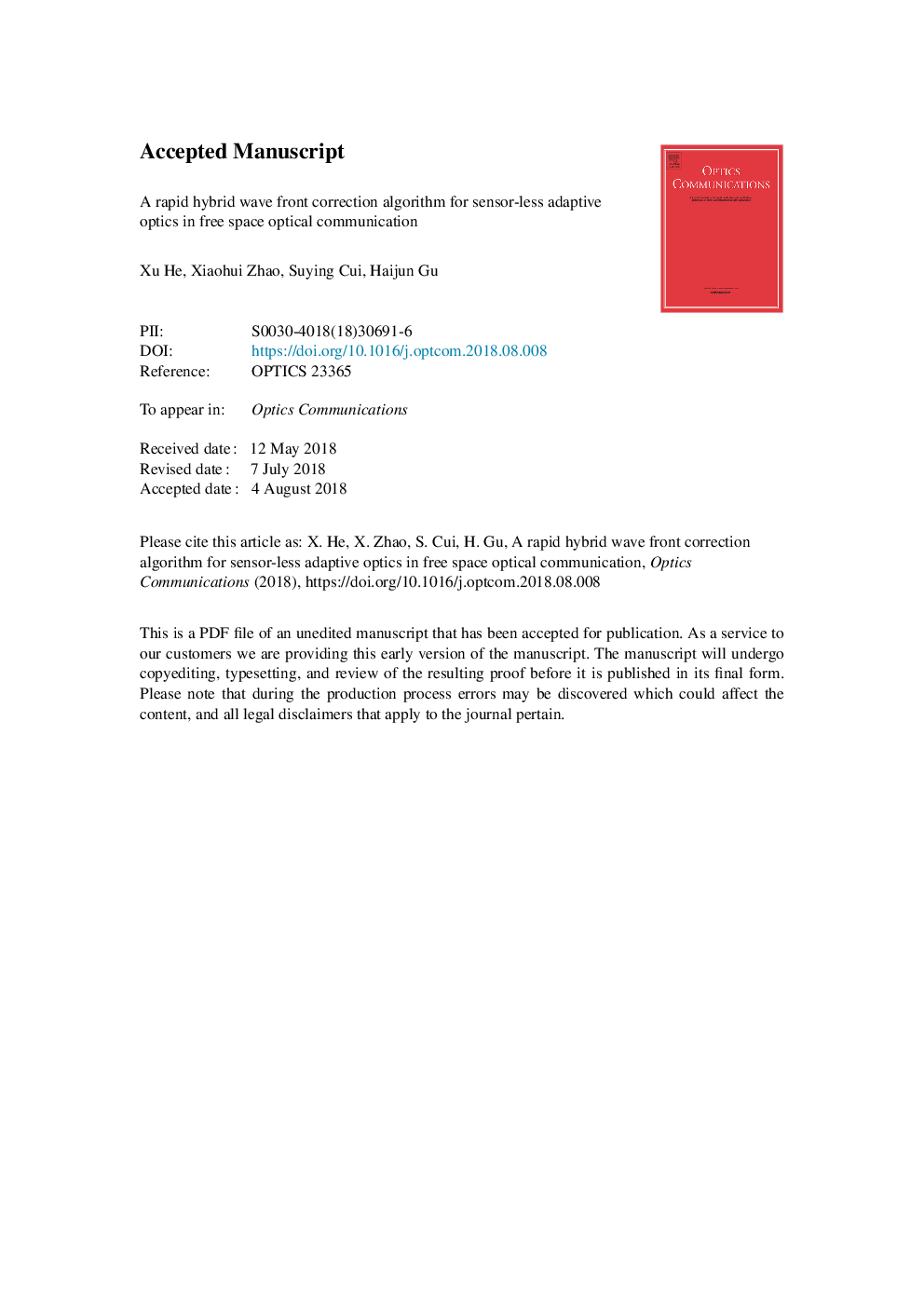| Article ID | Journal | Published Year | Pages | File Type |
|---|---|---|---|---|
| 7924476 | Optics Communications | 2018 | 21 Pages |
Abstract
In free-space optical communication (FSOC) system, wave front sensor-less adaptive optics (AO) technology is widely used to compensate wave front distortions caused by atmospheric turbulences. There are different kinds of compensation methods with both advantages and disadvantages. The conventional and often considered model-free algorithm, stochastic parallel gradient descent (SPGD) algorithm, requires a lot of iterations to obtain optimal solution, which may lead to a poor real-time performance. The newly developed model based algorithms have certain constraints and difficulties for the construction of the models. Therefore, in order to develop a rapid wave front distortion compensation algorithm with better performance, we present a hybrid method by a suitable combination of SPGD algorithm and a model-based algorithm presented by Martin J. Booth. Simulations under our built experiment platform show that this hybrid method can compensate wave front aberrations fitted by the Zernike polynomials in higher speed than that of SPGD algorithm at higher SR and lower RMS with strong turbulence, which means it can improve communication quality.
Related Topics
Physical Sciences and Engineering
Materials Science
Electronic, Optical and Magnetic Materials
Authors
Xu He, Xiaohui Zhao, Suying Cui, Haijun Gu,
